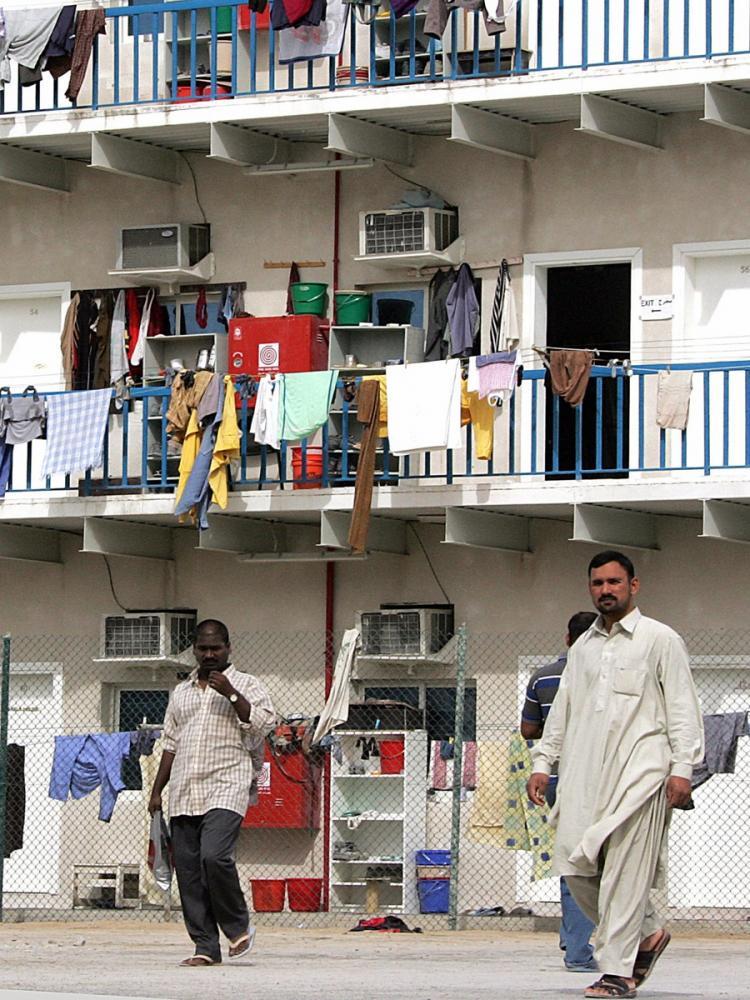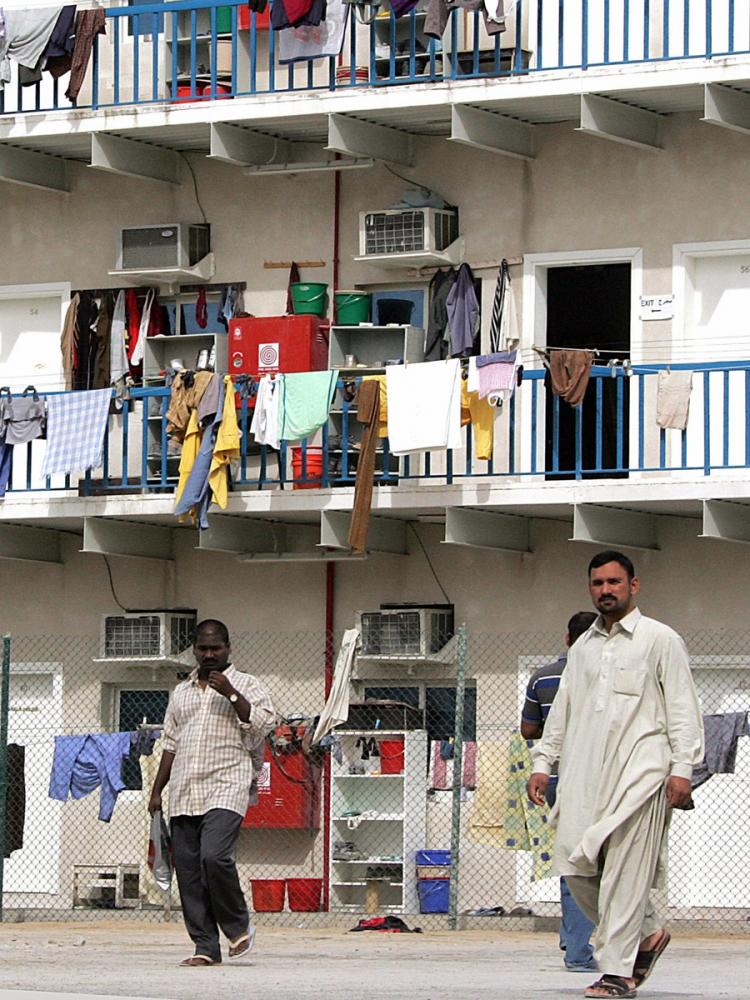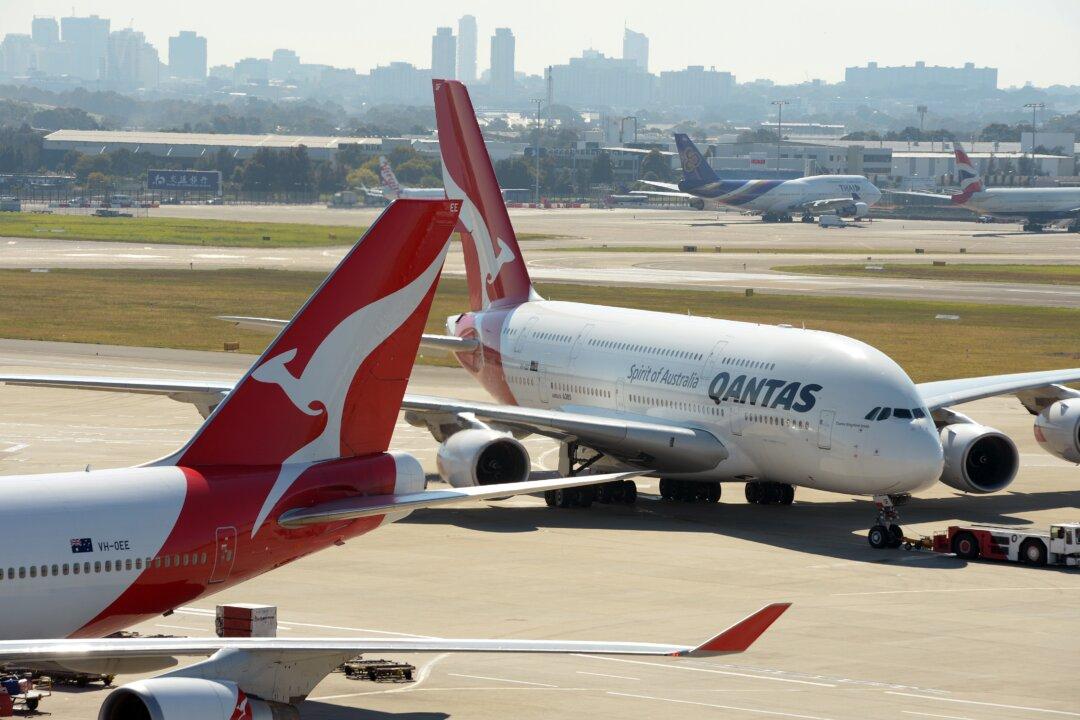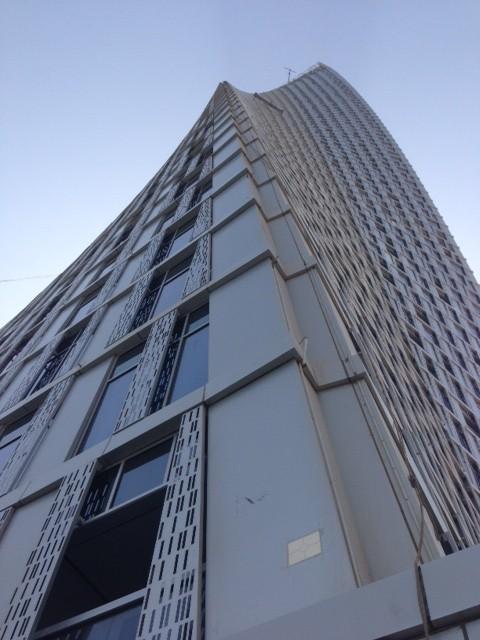Labor Protests Become More Common in Recession-Hit Dubai
Human Rights Watch has long raised concern about the treatment of workers in the United Arab Emirates.
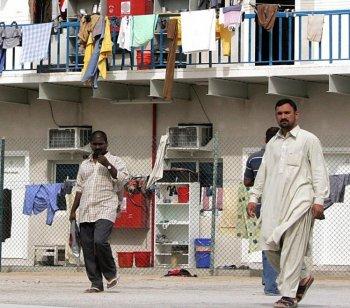
LABOR CONDITIONS: Asian workers walking in Sonapur camp in Dubai (file photo, 2006). Seventy ringleaders were arrested on Wednesday for organizing a strike against low wages paid by Arabtec construction company. Foreign workers in Dubai are forced to live in cramped, squalid so-called 'labor camps.' Rabih Moghrabi/AFP/Getty Images
|Updated:
